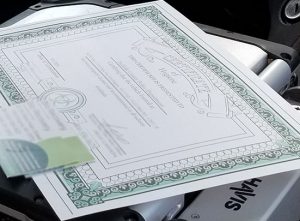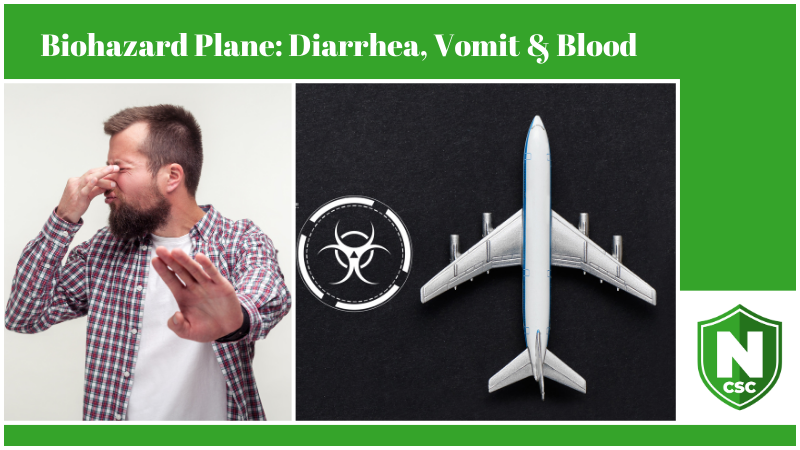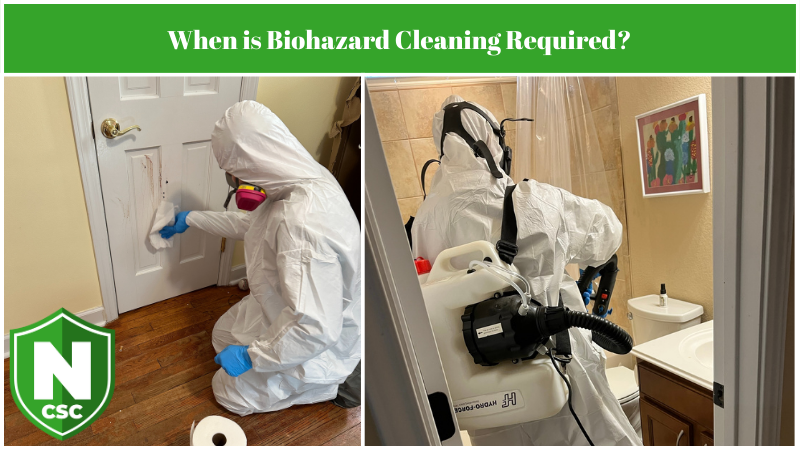What To Look For When Buying a Biohazard Car

If you’ve been in the market for a car for a while, chances are you’ve seen a low mileage or newer car at a suspiciously low price. You give the listing a thorough glance over and see that the title on the car is “BIOHAZARD”. What does that mean?
A biohazard car is any car that has been contaminated by biohazards during its lifetime. This means that the car has had blood or bodily fluids or mold. Biohazard cars can be the result of a result of suicide, homicide, child birth, or flood. Other situations, such as a car that has been severely hoarded with biohazards present (e.g. animal waste or bodily fluids), can also trigger a biohazard car title.
The National Crime Scene Cleanup comprises crews of licensed biohazard car detailers. Having been in business for over 20 years, our crews are experts on these cars. We’re here to share tips and things to look for if you are interested in trying to get a good deal on a car.
In this high demand market and inflated economy, buying a biohazard car may not be a completely unwise decision, especially when you’re able to save money on a mechanically safe and professionally restored car. However, in order to make that decision, you obviously need to know what to look for and take several factors into consideration.
What to Look For
A biohazard titled car requires a more thorough evaluation than a clean title car. You’ll want to do your due diligence by making sure that you have all paperwork pertaining the car’s history to review. The three biggest things you’ll want to ask for include:
- The type of situation that occurred and how long the car was left under those conditions.
- Certificate of Hygiene
- Insurance documentation or photos of the previous damages
Ask What Type of Situation Occurred
You’ll want to know what type of situation occurred–whether it be water damage as a result of a flood, a baby born in the car, or even a collision that resulted in a small biohazard spill. Knowing the difference between a small blood spill vs. a suicide in the car will help make the decision on what you’re willing to sacrifice part of the cost for.
You should also ask how long the car was left before being properly treated. The quicker the dispatch was to the vehicle, the more likely the situation was contained. Having this information will also give you insight into if the car was sitting–an additional helpful detail to knowing how the car was kept.
Although you should always ask regardless, keep in mind it may be a challenge to collect this information when the car is at a dealership or at an auction. Sometimes, when a car is bought at an auction, biohazards are discovered after the vehicle is bought by the buyer! A private seller is more likely to have and share information.
Certificate of Hygiene
A credible biohazard cleaning company will issue a Certificate of Hygiene upon completion of the work. NCSC issues one upon completing every cleanup–that is, upon passing air quality and microbial tests–and the satisfactory review by the property owner or family.
A Certificate of Hygiene simply states that the work has been completed professionally through an OSHA-licensed biohazard company. The certificate allows businesses to reopen safely. For families. the certificate serves as an added layer of protection and peace of mind to families.
It also can be extremely helpful for both the owner and prospective seller of a biohazard car. When a biohazard event occurs in a car, whether it be from mold, human bodily fluid or excrement, or animal waste, a car’s title turns from clean to BIOHAZARD CAR-though the exact circumstances of the situation, including if the vehicle was professionally cleaned, is not reported by the DMV.
If you’re looking at a car that’s been contaminated by biohazards or has a biohazard title, be sure to ask if the vehicle comes with a Certificate of Hygiene. A biohazard vehicle that has been properly treated should have this certificate with it along with the title for the rest of its life.
Documentation of the Event
If the car owner claimed that the car was professionally treated, or if a certificate was issued, the event was likely reported to insurance. That means you should ask for insurance documentation. Insurance documentation will show the extent of damage and restoration done. Be aware documentation does typically include photographs — which, depending on the situation, could be graphic.
Trust Your Gut
These are things you can ask to help make your decision, however, there’s no way to ultimately know for sure. Ask questions and always trust your gut.
Also, keep in mind that a biohazard car is still a car. You’ll still want to have the car checked by a mechanic you trust to make sure it’s mechanically sound. You’ll want to review the accidents on the car, if any, and verify that any work that has been done to the car is cosmetically or structurally sound. If you’re buying the car from a dealership, you’ll want to thoroughly understand the warranty, if any, or the dealer’s additional warranty (again, if any).
If this information has helped you, please help the biohazard specialists at NCSC by sharing this post on social media!





